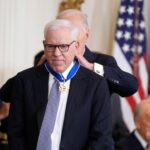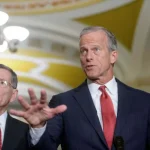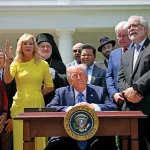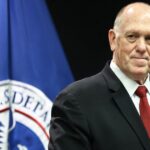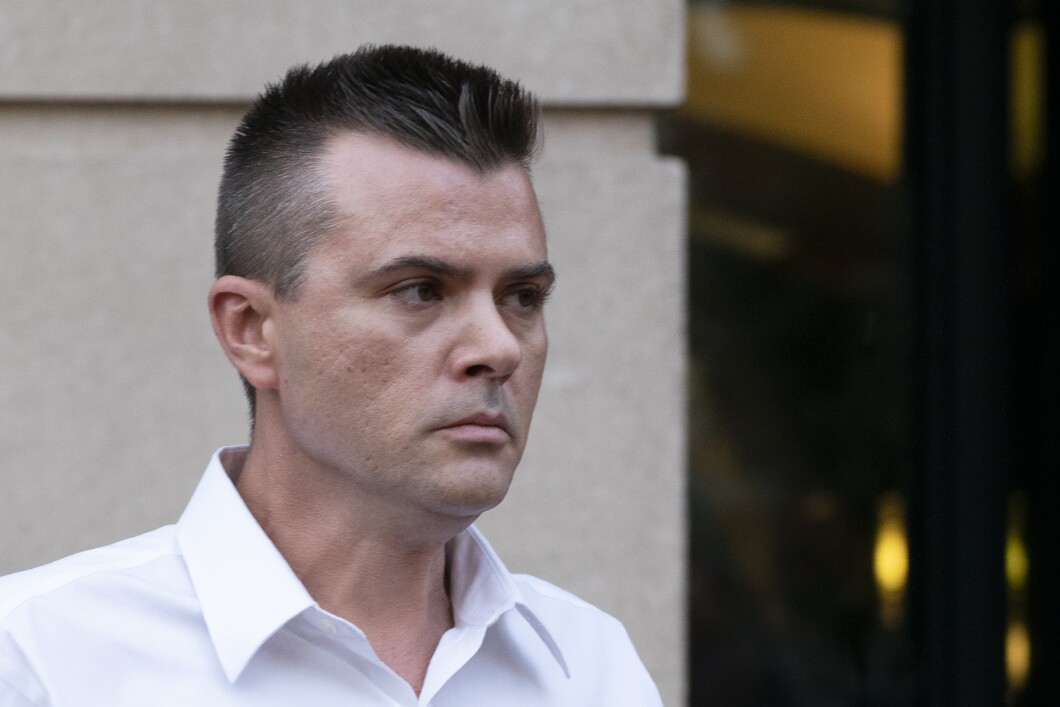
ALEXANDRIA, Virginia — The FBI set up an immunity agreement with British ex-spy Christopher Steele’s main source shortly before the bureau made Igor Danchenko a paid confidential informant in early 2017, special counsel John Durham’s trial revealed.
Danchenko was on the FBI’s payroll as a confidential human source from March 2017 to October 2020, as shown by Durham in court filings, before he was charged in November 2021 with five counts of making false statements to the bureau. He has pleaded not guilty, and his lawyers claim the FBI will praise his work for the bureau.
Durham prosecutor Michael Keilty said Tuesday that the FBI in early 2017 had two main goals related to Danchenko: uncovering the Russian’s dossier sources and attempting to either corroborate or refute the dossier’s allegations. Keilty noted the existence of the immunity agreement in his opening argument, arguing that its requirements were that Danchenko tell the truth, not conceal information, and not lie.
Danchenko defense lawyer Danny Onorato argued that Keilty was lying about the existence of an immunity agreement during his own opening argument, telling the jury, “That’s a lie. He just lied to you.” Onorato told the jury to “think about that while you consider the government’s case” as he argued that the agreement his client had signed in January 2017 did not provide immunity from prosecution.
FBI OFFERED STEELE $1 MILLION FOR DOSSIER PROOF
After the jury left the room, Durham said that the comments by Danchenko’s lawyer were “highly inappropriate” and “untrue.” He said the agreement Danchenko had signed with the Justice Department referenced the statute guiding immunity, and Durham called on the judge to instruct the jury to disregard the Danchenko lawyer’s claims. Keilty and Onorato continued to debate the document quietly during a brief recess.

The judge ended up siding with Durham’s team and shot down Danchenko’s argument. “I think the jury does need to be told something,” Judge Anthony Trenga said before they walked in. Durham repeated that the jury should be instructed to disregard the Danchenko lawyer’s claims.
The judge said that although Danchenko was not given total immunity, he was absolutely given partial immunity. Trenga said simply, “That’s an immunity agreement.” Danchenko’s lawyer kept trying to argue the issue, but the judge wouldn’t have it. “I don’t want to prejudice Mr. Danchenko because of his counsel’s improper remarks,” the judge said.
“Mr. Onorato’s statement needs to be clarified,” Trenga told the jury, adding, “While it does not provide total immunity, it does provide use immunity.”
The agreement was signed between Danchenko, his former defense lawyer Mark Schamel, and David Laufman, the now-former chief of the counterintelligence and export control section within the National Security Division at the Department of Justice. The letter was signed Jan. 24, 2017, the first day in three consecutive days of interviews the FBI had with Danchenko at the time.
The immunity arrangement called for “complete and truthful testimony” from Danchenko. The agreement indicated that “your client must answer all questions regarding the subject matter of this investigation and must not withhold information” and that Danchenko was not supposed to “falsely implicate any person” nor attempt to shield or protect anyone. Durham said the agreement was void if Danchenko lied.
FBI supervisory intelligence analyst Brian Auten, who testified during the trial on Tuesday, was one of the FBI agents who interviewed Danchenko in January 2017. Auten said neither Danchenko nor Steele ever provided corroborating information for the dossier, even though the FBI had offered the former MI6 agent up to $1 million if he could back up his claims, which he apparently could not.
According to Durham, Danchenko anonymously sourced a fabricated claim about Trump 2016 campaign manager Paul Manafort to Charles Dolan, a Clinton ally who spent years, including 2016, doing work for Russian businesses and the Russian government.
Durham’s indictment also says Danchenko lied to the FBI about a phone call he claims he received from Sergei Millian, a Belarus-born U.S. citizen and businessman whom the Steele source had said told him about a conspiracy of cooperation between former President Donald Trump and the Russians — which the special counsel says is false.
Keilty had argued during his opening statement that Danchenko “fabricated a source” (Millian) and “concealed a source” (Dolan). The prosecutor said that Danchenko’s false statements were “lies that the FBI relied on in a historic investigation into alleged collusion between U.S. citizens and the Russian government” and “lies that the FBI should have uncovered, but never were.” The prosecutor said that “the Steele dossier would cause the FBI to engage in troubling conduct” and “the defendant’s lies contributed to that surveillance” of Trump campaign associate Carter Page.
CLICK HERE TO READ MORE FROM THE WASHINGTON EXAMINER
“Let me be crystal clear from the outset: Igor Danchenko is not guilty,” Onorato countered, adding, “His statements were truthful.”
Onorato contended that Danchenko “courageously, loyally, and honestly” served U.S. national security interests as a paid informant.
The defense lawyer also argued that the evidence at trial would “eviscerate” any claim that Danchenko “was anything but untruthful” before correcting himself to say “truthful.” Later in his opening statement, the defense lawyer said Danchenko was “guilty” before quickly correcting himself mid-sentence to say “not guilty.”


